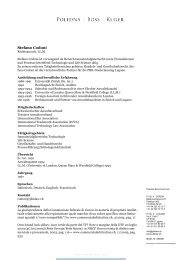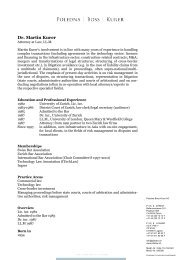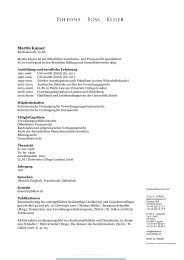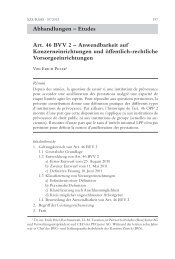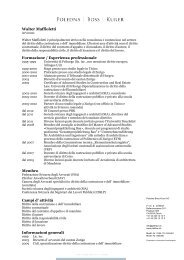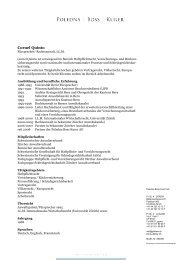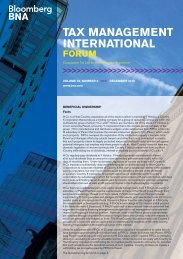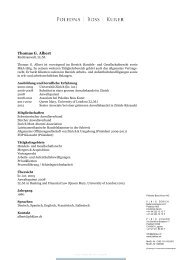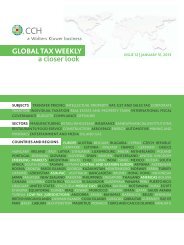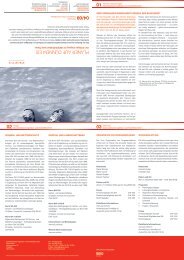721.8 kB - Poledna | Boss | Kurer
721.8 kB - Poledna | Boss | Kurer
721.8 kB - Poledna | Boss | Kurer
- No tags were found...
You also want an ePaper? Increase the reach of your titles
YUMPU automatically turns print PDFs into web optimized ePapers that Google loves.
taxation treaties concluded by Switzerland functionas a correcting tool. With regard to the PEdefinition of article 51, paragraph 2 of the FDTAthis means that the requirements of a foreign PEof a Swiss company may be somewhat stricterthan the requirements of Swiss PE of a foreigncompany. Therefore, in cases where it is questionablewhether the foreign place of business qualifiesas a PE according to article 51, paragraph2 of the FDTA, the decision should be taken infavor of the Swiss authority's power to tax, i.e.the foreign place of business shall not be recognizedas a PE according to article 51, paragraph 2of the FDTA. An imminent double taxation canbe avoided by means of a double taxation treaty,provided that one applies.The court was of the view that the lean infrastructureof the Cayman Islands PE – four parttimeemployees with a 20 percent workload eachand an annual salary between USD10,000 and20,000 each – was in clear contrast to the figuresshown in the 2005 and 2006 P&L statementsof X AG. The balance sheet total of XAG as per end 2005 amounted to CHF365 millionand as per end 2006 to CHF520 million.The loans granted to Swiss affiliated companiesamounted to CHF497 million as per end 2005and to CHF647 million as per end 2006. Theincome of X AG consisting solely of interestincome amounted to CHF16 million in 2005and CHF18 million in 2006. From the 2005and 2006 P&L statements of X AG is was clearthat the business activity of X AG consisted ingranting loans to Swiss affiliated companies; itwas, however, not clear to the court what theadded value of the Cayman Islands PE to X AG'sbusiness activity was. The court therefore ruledthat the Cayman Islands PE lacked the necessarysubstance and did hence not qualify as a PE accordingto article 51, paragraph 2 of the FDTA.Finally, X AG claimed that it was entitled to relyon the ruling of August 10, 1999, in which theZug tax administration had agreed that in case thegroup financing would be done through a foreignPE of a Swiss finance group company, the profitsattributed to the foreign PE would be exempt fromtaxation in Switzerland. X AG argued that the retroactivedenial of the Zug tax administration toexempt the 2005 and 2006 net profits from federalcorporate income tax without granting X AG anadequate transitional period violated its protectionof legitimate expectations. The court, however, didnot rule on the violation of X AG's protection oflegitimate expectations. Because the court of lowerinstance had upheld the existence of a foreign PEunder Swiss domestic tax law, it had not addressedthis issue. Therefore, the court remitted the caseto the court of lower instance in order to decideon the ruling the issue. However, the court statedthat in case the FTA had been involved by theZug tax administration in the negotiation processof the ruling of August 10, 1999 – which basedon the documentation submitted to the court didnot seem to be the case – the retroactive denialof the Zug tax administration to exempt the 2005and 2006 net profits 2005 from federal corporate7



